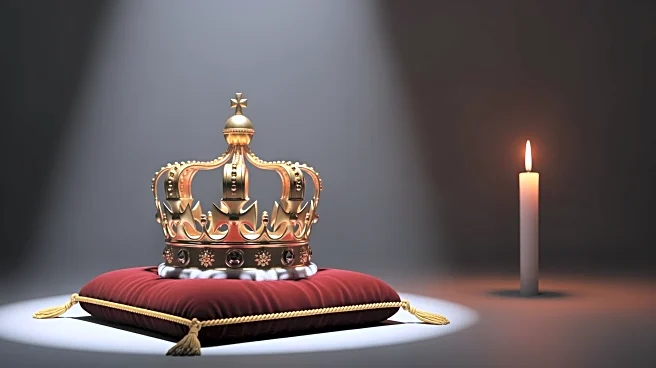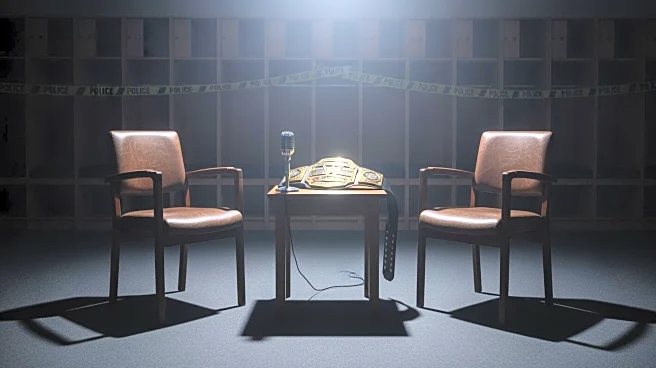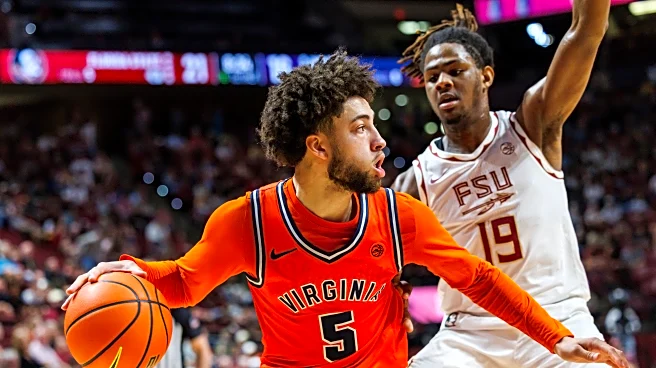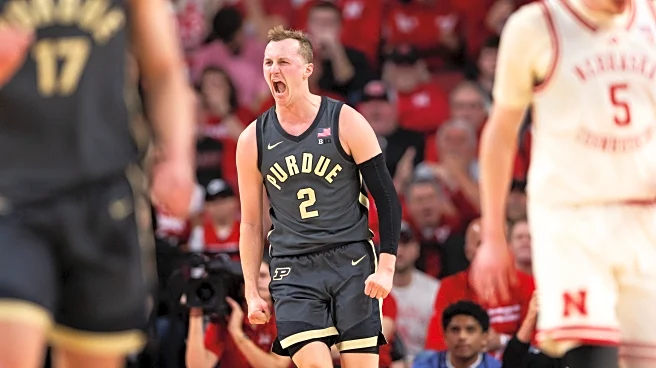What's Happening?
King Charles III is set to lead the nation in a two-minute silence at the National Service of Remembrance at the Cenotaph in London. The ceremony, scheduled for 11:00 GMT, will honor those who died in conflict.
King Charles will lay a wreath at the monument, joined by senior royals and political leaders, including Prime Minister Sir Keir Starmer. Approximately 10,000 armed forces veterans, along with around 20 World War Two veterans, will participate in the Royal British Legion's march-past. The event coincides with Remembrance Sunday, observed on the closest Sunday to Armistice Day, marking the end of World War One in 1918. On the eve of Remembrance Sunday, King Charles, Prince George, Queen Camilla, and Catherine, Princess of Wales, attended the Festival of Remembrance at London's Royal Albert Hall, commemorating those who lost their lives in service.
Why It's Important?
Remembrance Sunday serves as a poignant reminder of the sacrifices made by armed forces personnel in past conflicts, reinforcing national unity and respect for veterans. The participation of King Charles III and other senior royals underscores the significance of the event in British culture and history. The ceremony not only honors those who served in World War One and World War Two but also acknowledges the contributions of veterans in subsequent conflicts. The event's focus on the end of a ban on gay people serving in the armed forces highlights ongoing efforts to address past discrimination and promote inclusivity within the military. This observance fosters a sense of collective memory and gratitude, impacting public sentiment and policy regarding veterans' affairs.
What's Next?
Following the Remembrance Sunday ceremony, discussions may continue regarding the support and recognition of veterans, including those who faced discrimination. The event could prompt further initiatives to address historical injustices within the armed forces. Political leaders and civil society groups might advocate for enhanced veteran services and policies that reflect the evolving understanding of military service and its impact on diverse communities. The Royal Family's involvement may also influence public engagement with veteran-related causes and charitable efforts.
Beyond the Headlines
The Remembrance Sunday events highlight the cultural and ethical dimensions of honoring military service, including the importance of acknowledging diverse experiences within the armed forces. The focus on past discrimination against LGBT personnel reflects broader societal shifts towards inclusivity and equality. This observance may contribute to ongoing dialogues about the role of the military in promoting social justice and the need for historical reconciliation.










